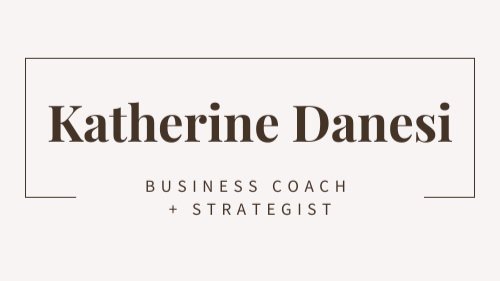The benefits of starting small.
It’s time to release all-or-nothing thinking in your business (and life).
A couple of weeks ago, I caught a LinkedIn Live Audio event hosted by two LinkedIn experts.
During the Q&A, they were asked about the most effective practices to increase awareness and reach on the platform.
One of them recommended spending time commenting on other people’s posts as one of the best ways to do this. Specifically, he said that we listeners should spend at least 30 minutes a day on this activity.
I caught myself thinking, “Wow, 30 minutes a day. I can’t do that. I don’t have the time for that.” And I was about to entirely ignore his advice, but…
But it’s not the first time a marketing expert has said this is a worthwhile strategy.
And I might not have 30 minutes a day to comment on other people’s LinkedIn posts, but I could do 10.
And wouldn’t 10 be better than zero?
_____
Start small.
I may be one of the dozen business folks out there who’s not yet read James Clear’s book Atomic Habits: Tiny Changes, Remarkable Results.
But I have heard him interviewed on several podcasts and seen his ideas referenced across social media. And I subscribe to his weekly “3-2-1 Newsletter.”
So, I have a decent grasp of his thesis and approach to building good habits.
One of his recommended tactics to get a habit to stick is to start small.
For example, your goal is to work out for 45 minutes, five days a week. And your schedule dictates first thing in the morning is the best time.
His advice is to start with 15 minutes, two or three days a week.
Ease yourself into it. Start seeing positive results. Get excited about that and build on your small start.
Another tactic is to not skip an activity entirely on days you can’t manage your usual commitment.
Let’s say you’re up to five days a week for 30 minutes. And on any given Tuesday, you have an early meeting or you oversleep.
Your reaction might be to abandon your workout entirely.
Instead, James Clear suggests getting in a 15-minute workout. Not no workout.
_____
On making this work for you.
The goal is to work the process so it works for you.
Which means setting reasonable goals given the demands on your time.
Choose an area of your business where you’ve identified an activity (aka a habit) that you know can have a long-term positive impact (or at least you suspect that’s the case and you want to test it), and start small.
Building on last week’s theme of time-blocking, put the smallest block of time on your calendar that you can absolutely commit to.
Not what the experts recommend or what you know you want to be doing once you’re in the groove or “when time permits” or once the new hire has been made.
What you can do now — to be doing something rather than nothing.
And that over time can add up to potentially meaningful progress.
So you start to see results you can build on.
Let’s work together to get you started on the right activities to grow your business.
